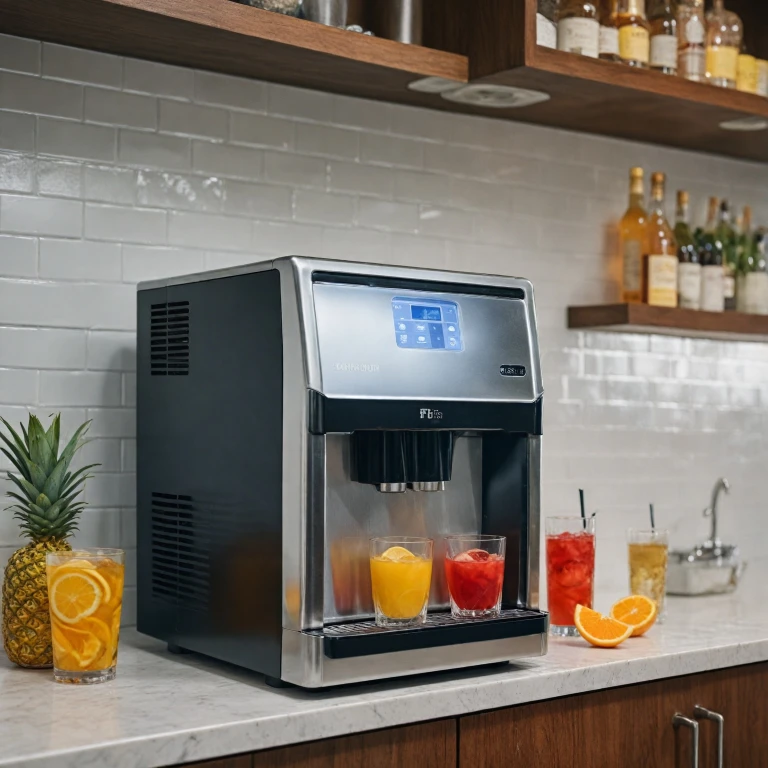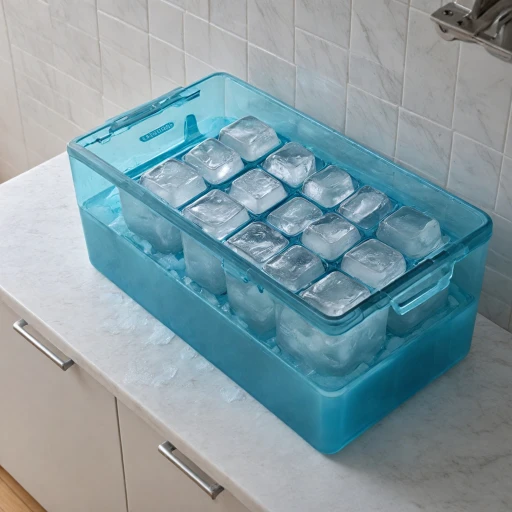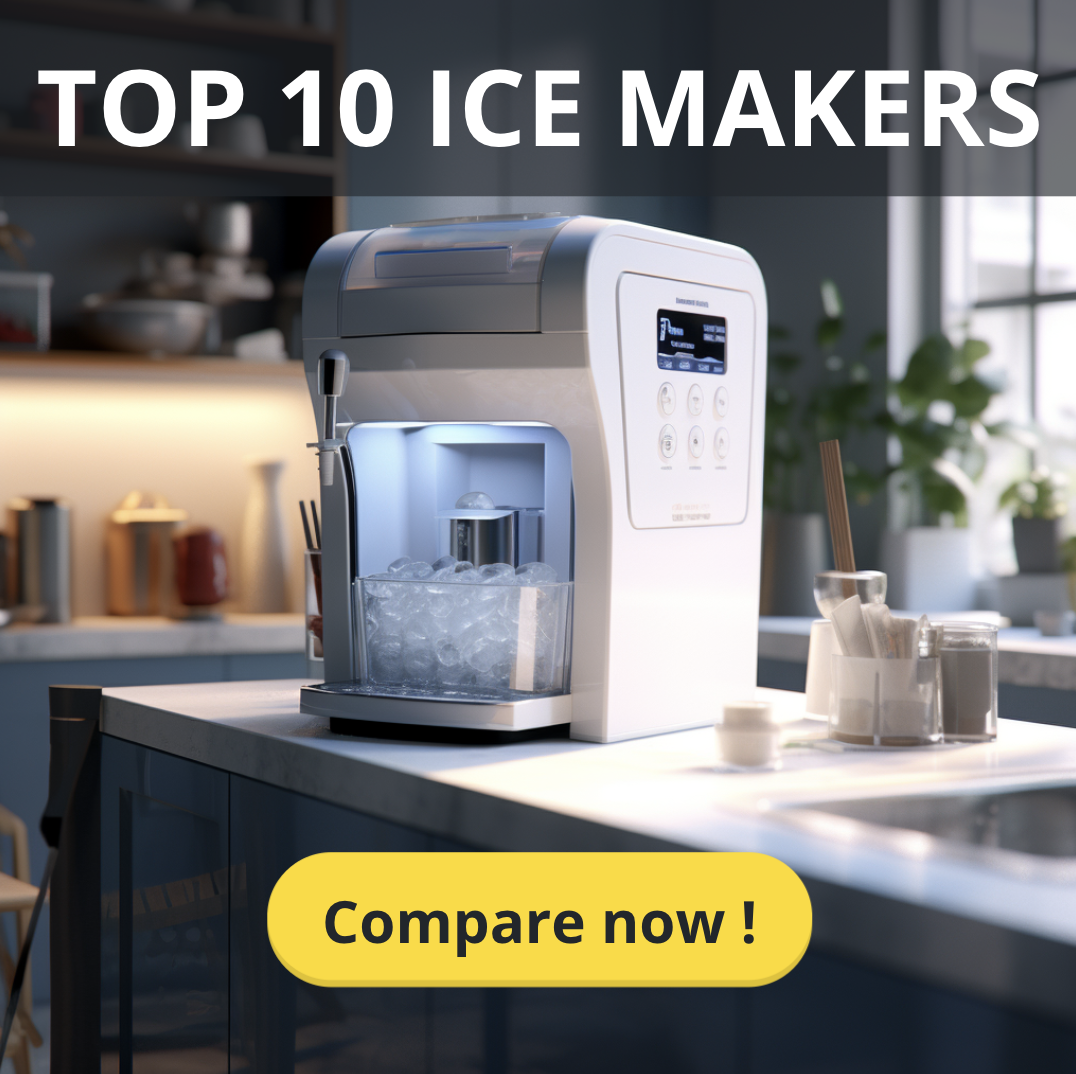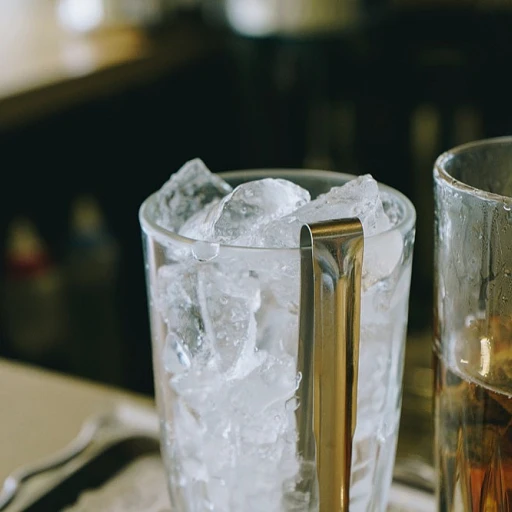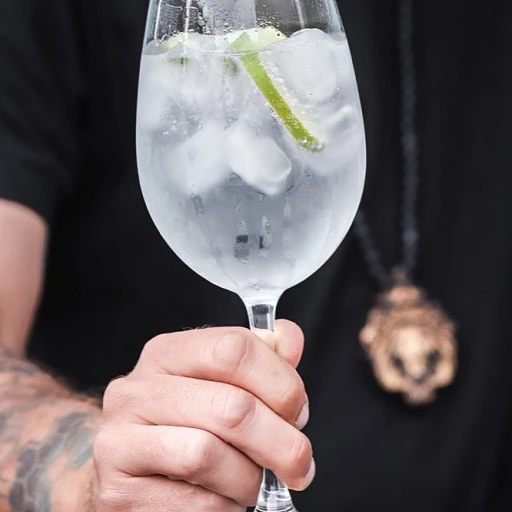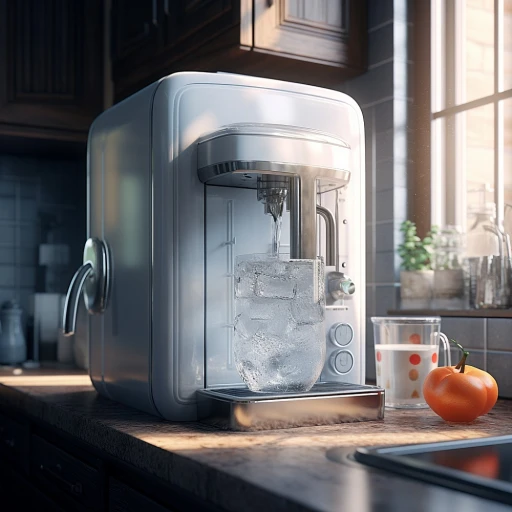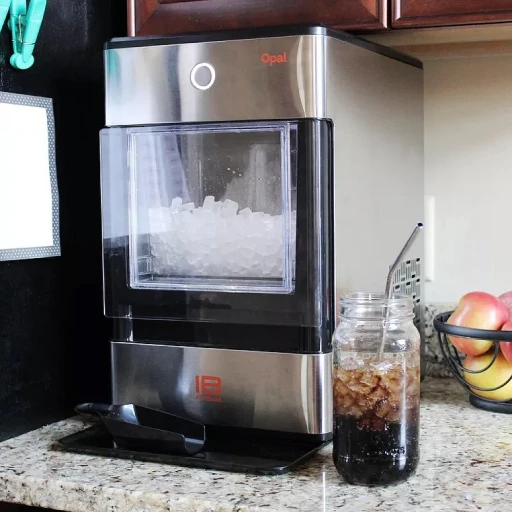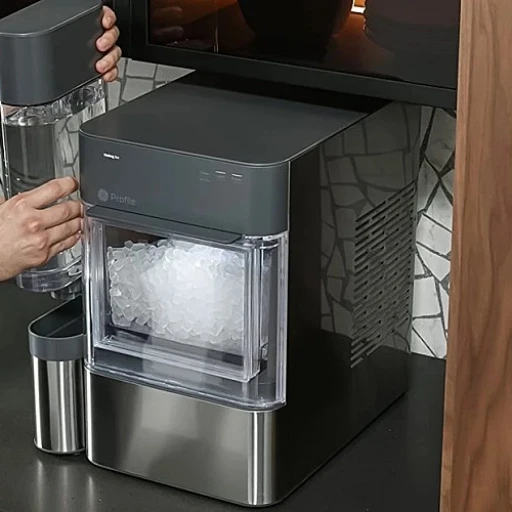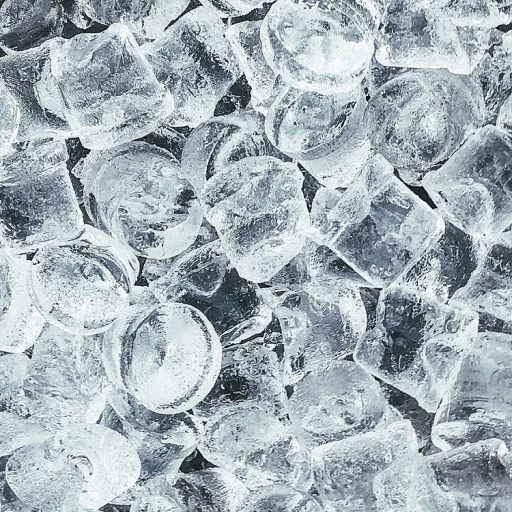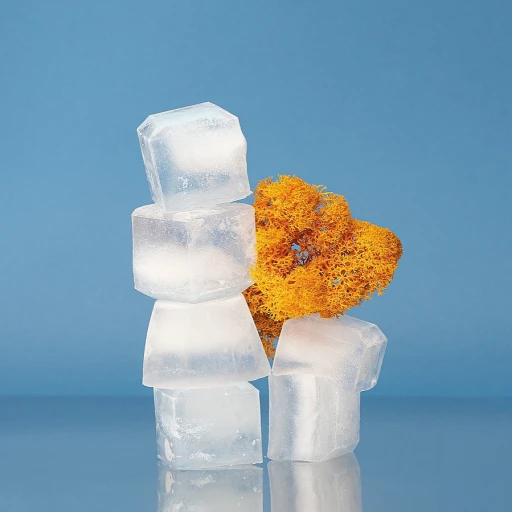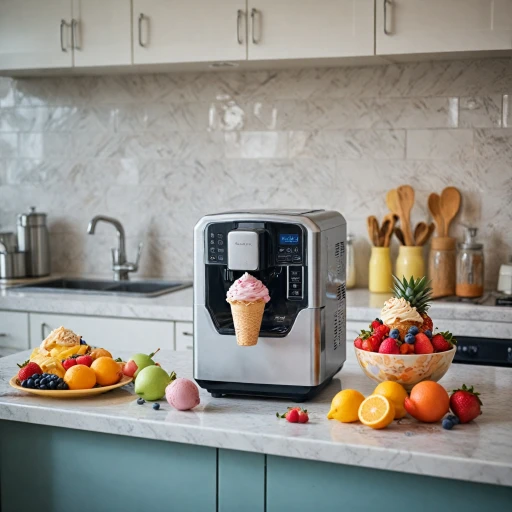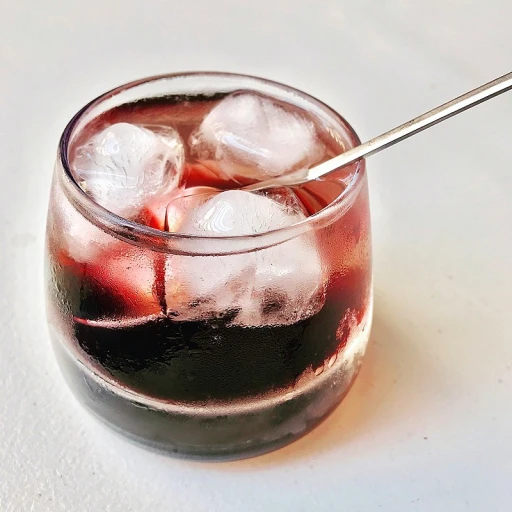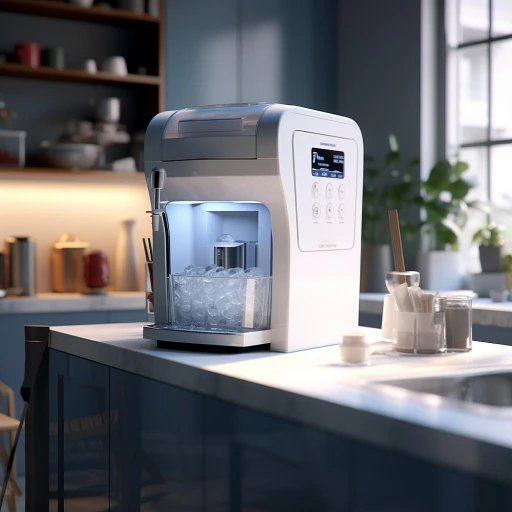Understanding Ice Types for Fountain Machines
Exploring Ice Varieties for Your Soda Fountain
When selecting an ice maker for your fountain machine, understanding the types of ice available is crucial to ensuring customer satisfaction and optimal machine performance. Different ice types can impact how a beverage is dispensed and enjoyed.- Cube Ice: A popular choice for soda fountains, cube ice is known for its slow melting properties, maintaining the flavor and chill of the beverage. This makes it suitable for both iced soft drinks and mixed beverages.
- Nugget Ice: Sometimes referred to as "chewable ice," nugget ice has a softer texture and is ideal for use in beverage dispensers. Its fast cooling capability is a favorite in commercial settings, enhancing the ice beverage experience.
- Flaked Ice: Often used in food displays or specialty drinks, flaked ice is excellent for chilling items without a direct food contact ice machine. However, it's less common in soda fountain machines where longer-lasting ice is preferred.
Capacity and Production Rate
Evaluating Capacity and Output Requirements
When selecting the optimal ice machine for your soda fountain or beverage dispenser, understanding how much ice your operation requires is crucial. Ice makers vary significantly in their production rates, which can typically range from a modest number to thousands of pounds per day. To determine your ice needs, consider the peak demand times and the nature of your business, whether it's a bustling restaurant or a modest café. Incorporate considerations of other sections such as space and installation together with capacity to ensure the ice maker fits seamlessly into your current setup.
- Ice Production Rate: Evaluate the daily ice production capacity required for your soda fountain or dispenser. A commercial ice machine should match your peak ice usage to avoid shortages.
- Storage Capacity: Assess the ice storage capacity as well. The storage should accommodate the production rate and usage frequency to ensure ice availability throughout the day. Larger capacity ice storage is often preferred in high-traffic settings.
- Type of Dispenser: Some ice makers come with built-in dispenser options, like drop soda or ice water. Match these features with your existing beverage dispensers, whether they are air cooled or water cooled.
- Cornelius Machines vs. Other Models: Consider if a Cornelius machine aligns with your capacity needs. It’s worthwhile to compare different brands to ensure your chosen model meets your specific requirements.
It’s also vital to match the machine's output with your beverage dispenser or soda fountain units' capabilities. The valve operations, such as the lever or cubed ice feature, need to align with the dispenser’s requirements to ensure smooth delivery of iced beverages. Looking at ice storage and machine effectiveness can help in making an informed decision. Explore the versatility of an 18 inch ice maker as a practical choice if space or flexibility is a top consideration.
Energy Efficiency and Cost Considerations
Evaluating Efficiency and Cost Factors
When selecting the right ice maker for your soda fountain, considering the energy efficiency and cost implications becomes crucial. Various machines like air cooled and water cooled models differ in energy consumption. Water-cooled machines can be more efficient in certain environments but might have higher water usage. Meanwhile, air cooled options often become more economical for places with lower ambient temperatures. Understanding the energy requirements of the ice maker significantly impacts operational costs. Machines with high production rates might consume more energy. However, some advanced models, such as the Indigo NXT, offer efficient energy use by incorporating smart technologies.- Ice Production Needs: Calculate the frequency of peak demand times for your ice beverage and soda fountain. The choice of a dispenser ice machine with optimal energy consumption supports consistent supply without excessively high bills.
- Operational Costs: Different SKUs represent varying costs, impacted by production rate, storage capacity, and efficiency. Evaluate long-term energy costs versus initial investment by checking the energy star ratings and efficiencies.
- Material and Durability: Machines made from stainless steel are more energy-efficient due to their durability and often come with longer warranties, ensuring reduced long-term replacement costs.
Maintenance and Cleaning Requirements
Essential Maintenance Tips for Optimal Performance
Proper maintenance and cleaning requirements are crucial for ensuring the efficient operation and longevity of your ice maker. Regular upkeep of your dispenser ice machine affects not only the quality of ice but also the performance of your soda fountain machine.
First, identify which type of ice machine you have, be it an air-cooled or water-cooled unit, as maintenance needs may vary. For those using a stainless steel countertop ice machine, cleaning the exterior regularly will prevent unattractive marks and residue build-up.
- Regular Cleaning: Monthly cleaning of the beverage dispenser and ice storage is recommended. This process involves emptying the storage bin, running a cleaning solution through the ice machine, and rinsing thoroughly to maintain hygiene, especially for a commercial setup.
- Filter Replacement: Valves and levers of the dispenser should be checked and filters replaced periodically. This prevents mineral build-up which can affect the taste of ice and potentially damage the machine.
- Inspect Valves and Water Lines: Regularly inspect water lines and valves. Contact a technician if there's a noticeable decline in ice production or if any leakage occurs, as these factors can decrease efficiency.
- Professional Servicing: Scheduling annual servicing for complex machines, like Cornelius soda fountains or commercial ice machines, is vital. Professional checks ensure that every item, from the valve to the ice water system, is functioning optimally.
Remember, adhering to maintenance protocols reduces the chances of unexpected breakdowns and prolongs the life of your device. For an elevated beverage experience, keeping your machines in top shape is the smart choice for achieving that crisp, refreshing taste in each drop soda or ice beverage served.
Space and Installation Needs
Consider Your Installation Space and Layout
Finding the right ice maker for your soda fountain requires careful consideration of space and installation needs. Whether you're integrating a machine into a new or existing setup, space constraints heavily impact your choice. Here’s what to consider:
- Available Space: Measure the dimensions of the area where the ice maker will be installed to ensure a fit. Consider access to water lines, power outlets, and adequate ventilation, especially for air cooled units.
- Countertop vs. Freestanding Models: Countertop ice makers like the indigo nxt can save valuable floor space, while freestanding models might offer larger capacity and production rates if space isn't a constraint.
- Storage Needs: Consider the ice storage capacity required to keep up with high-demand periods without overproducing unnecessary ice.
- Water and Valves: Ensure that water supply lines are nearby and easy to connect, and that the machine’s dispenser valves align with your soda fountain layout.
- Integrating with Other Machines: Check compatibility with existing beverage dispensers or soda fountain machines, including how efficiently the ice maker can supply multiple dispenser units.
When selecting an ice maker, don’t forget to factor in the type of cooling mechanism – whether water cooled or air cooled – and how this will fit with your commercial setup. Contact the manufacturer if you have unique installation needs or require specific item numbers or SKU for matching ice machines.
Brand and Model Comparisons
Exploring Trusted Brands and Model Options
In the competitive landscape of ice machines, it's essential to choose a trustworthy brand and model that aligns with your specific needs. When selecting the right ice maker for your fountain machine, taking into account the established brands can significantly streamline your decision-making process.- Cornelius: Known for commercial ice machines, Cornelius offers a variety of ice makers that are suitable for soda fountains and beverage dispensers. Their models often feature durable stainless steel construction, making them a reliable option for commercial use.
- Indigo NXT: This ice maker line stands out for its advanced technology and energy efficiency. Indigo NXT models typically feature intelligent diagnostics, ensuring maintenance and cleaning requirements are easily managed.
- Countertop Ice Makers: For those with space constraints, countertop ice makers provide compact solutions without sacrificing performance. Be sure to assess the ice storage capacity and production rate to ensure they meet your fountain machine's demands.
- Air Cooled vs. Water Cooled: Brands like Manitowoc offer both air cooled and water cooled ice machines. Air cooled models tend to be more energy-efficient, while water cooled options can be beneficial in environments where minimizing ambient heat is crucial.
- Dispenser Ice Machines: If you're using a soda fountain, consider models with integrated beverage dispenser features, such as lever or touch-free dispensers that efficiently manage ice and water flow.
-logo-retina.jpg)
